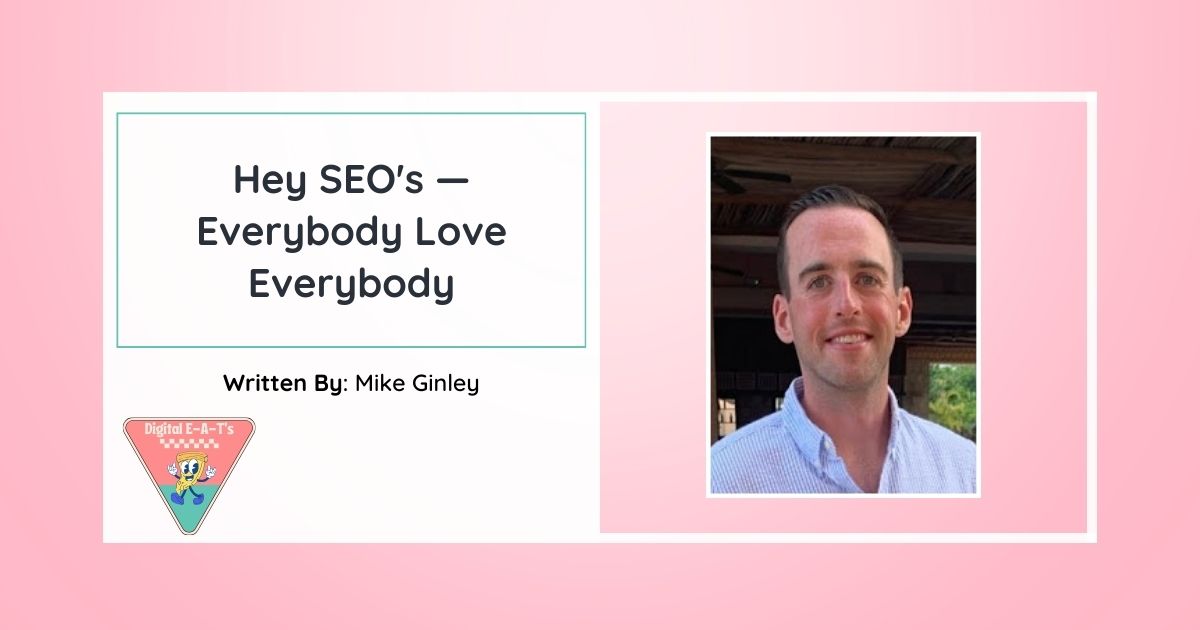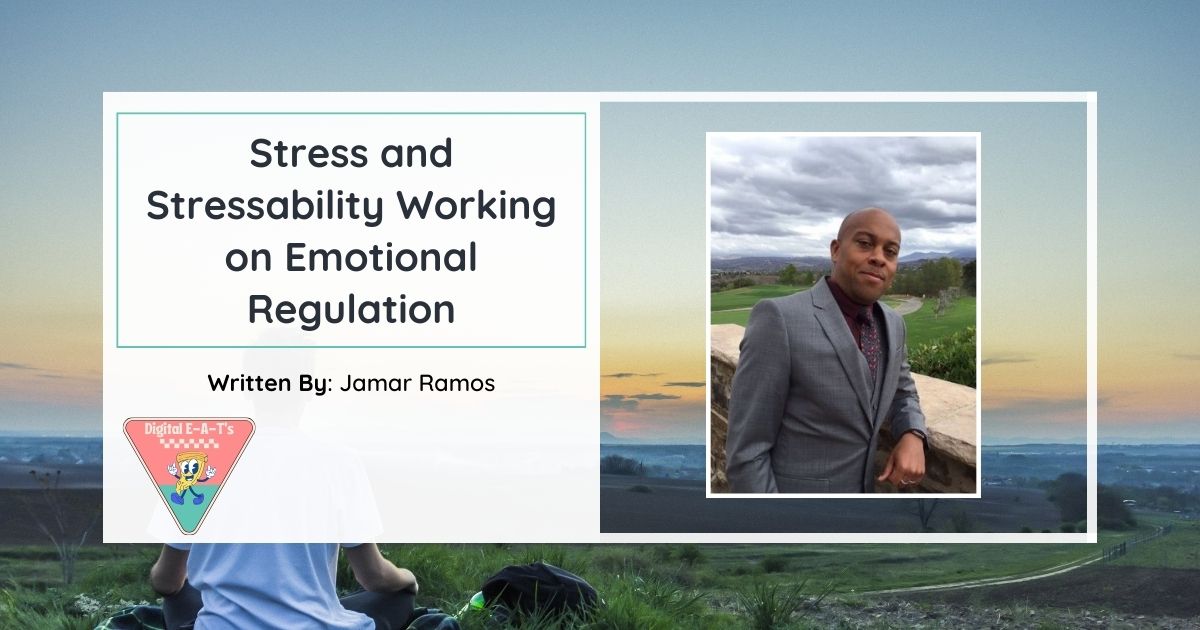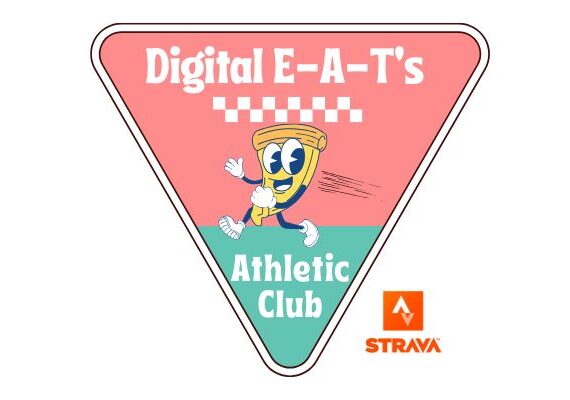The Importance of SEO for Businesses, Not Just Websites
- Written By - Katie McDonald
- Content Process
- June 4, 2024
It can be so easy for a new SEO to learn traditional, old-school SEO. We come across so many tools, reporting, and auditing software. There are so many basic guides about keyword research, what auditing involves, and what doing technical checks means and how you should go about it.
There are some great tools. But let’s not solely rely on using third-party tools to learn SEO and become advanced, or get left behind.
In a world where AI is fast advancing, and Google is doing the same now more than ever and E-E-A-T is unavoidable, we can and should push ourselves to become much better SEOs. Let’s learn and develop faster using historical data to make decisions that will affect the business. Don’t rely on tools that will tell us to change potentially trivial things.
Why Should SEOs Think Business First, Not Website First?
You should think business first because your customers are at the root of your business. 10 years ago, finding 100 keywords and shoving them in your website’s key pages and articles would have probably sufficed. But that was a decade ago, and it doesn’t work like that now to think website-first.
A business-first approach gives you a far more holistic, open-minded, and smarter perspective that doesn’t just pigeonhole you into keywords; SEO is so much more than that.
You’ll Get Better Results for Your Clients
For example, if you optimize for the same 100 keywords on those originally planned pages from 6 months ago, your campaign will peak and then stagnate. You’ll plateau. So, how do you avoid the plateau? Staying up to date with the likes of Search Engine Journal and Search Engine Land is a good place to start. Use these resources, but don’t be afraid to build your own opinions.
But if you’re really wanting to challenge yourself, jump to the end for some quick-fire top tips I’ve found invaluable for professional growth.
You’ll Build Better Relationships with Your Clients
Clients think business first because they are their business. So if you have the same mindset as them, things will run far more seamlessly. How do you do that?
- Think customer first.
- Think product first.
- Think topics first.
This all starts with asking your client questions. You want to get to know their business as well as you possibly can. Understand who they’re targeting, how their product solves a problem, and what their potential customers would want to know. That’s a solid place to start to open up the right conversations.
You’ll Be a More Valuable SEO with Better Ways of Thinking
If you don’t know enough about the business and the historical data of how a website performs, changing some H tags and shortening the meta description won’t make a difference.
How Can You Use Your Experience to Help Other SEOs Thrive?
I’ve mentored other junior SEOs as they started to delve into the industry and understand what search engine optimization even means. I could have quite easily pointed them to some good resources on basic SEO. And they would have learnt a tonne as newbies.
But I’ve been in the SEO industry for over 6 years now, and I’m a bit of a nerd about it. So I knew that 12 months down the line, those basics wouldn’t cut the mustard any more.
So I pointed to those resources as they’re still important to know about of course. But I invested a good few hours going through the really important stuff. The knowledge and approach that won’t expire in a year.
To name just a few, I explained:
- What does search intent mean? How do you get your head around it and optimize for it?
- Why you should understand the business over chucking a list of keywords in a sheet and calling it a “strategy.”
- The value of those two things combined.
How to Think Business First as an SEO
Build a Proper Understanding of Your Client’s Business and Their Target Audience
How do you do this? Your initial call or meeting with your client is a huge opportunity to kick SEO off on the right foot. Better holistic SEO, plus your client will like your approach.
Ask questions in your initial call, and going forward. Always be learning. Here are some examples:
- Who is your ideal customer?
- What challenges do they have?
- What problem does your product or service solve?
- Does your ideal customer know their problem, or do they need education?
- What are your business priorities for the next year? What’s most profitable?
- Can you ask your sales team what the most frequently asked questions are from their sales calls? Do they notice any patterns?
Use Real Historical Data to Understand the Business’ Organic Visibility and Overall Performance
Get confident with being in Google Search Console (GSC). Understand the data. Can you tell a story to the client about what’s happened? How have clicks, impressions, the average position, and CTR changed over time? What queries are in GSC and are they going to convert? Get used to living in Google Analytics 4.
Make Better, Thought-out Recommendations Once You’ve Done Your Deep Dive
Don’t make your SEO ‘strategy’ based entirely on a technical audit. Run technical checks to ensure the website has a solid foundation. If your whole site’s not indexed, or you’ve not got your sitemap in your robots.txt file, you’d need to fix that.
Do the research, have the right conversations with your client, and build a strategy around what will move the needle for the business. How can you increase profit?
Why is There a Misperception of SEO?
There are lots of misperceptions and misunderstandings in SEO. Duplicate content, keyword cannibalization, basic SEO, search intent, just to name a few huge issues that need breaking down.
Companies might have a tainted view of SEO for several reasons. For example:
- They’ve already had 29554 ‘audits’ that don’t make a difference to their bottom line.
- SEO can take months or years depending on the state of the site, the industry, and other factors.
- They’ve been burnt by a previous agency.
Let’s show real businesses what organic search can do if it’s done properly and understand the power of SEO.
SEO Isn’t Just About SEO-ing a Page
There are several ways to ‘SEO’ a page. I would have agreed with you completely many years ago. But don’t get me wrong. There are definitely important pieces to implement when you publish a new page or want to help the performance of a page. For example:
- Is your URL clean, simple, and keyword-rich where possible?
- Have you got internal and external links going to it?
- Is the page easy to access?
- Does it work suitably on mobile, if your traffic spends more time on mobile?
But the real SEO stuff happens after this checklist; not an exhaustive list. Here are some more important questions:
- Does your content meet the search intent of the query being asked?
- Is your content unique, or very similar to another page on your site?
- Can you add extra research, statistics, or expert commentary?
- Can you display your content more helpfully? Would a comparison table help, or a video with a product marketer explaining the function?
These questions, like SEO, shouldn’t be a tickbox task. It should be a freeflow brainstorm. So, a better question would be: How can we make this page awesome?
What Next? Quick-Fire Top Tips for SEOs
- Go learn from the likes of Daniel Foley Carter: Plenty of pivotal webinars here.
- Go do Kristina Azarenko’s: technical SEO pro course. I highly recommend this to understand Google Search Console properly!
- Go join communities like Women In Tech SEO (created by the wonderful Areej) and the Superpath Community (created by the brilliant Jimmy Daly).
- Stay aligned with the business’ next goals or internal campaigns.
- Always be thinking of or Googling new ways of doing things.
- Talk to other SEOs to get their opinions and learn from other conversations.
- Familiarize yourself with Google’s guidelines, regularly updated.
Written By

Katie McDonald
Katie McDonald is an SEO specialist at Kaweb Marketing. In this role, I manage SEO accounts both B2B and B2C, including e-commerce and lead generation.
Articles

5 Unpopular B2B SaaS Content Strategies That Drive More Product Signups
5 Unpopular B2B SaaS Content Strategies That Drive More Product Signups. Learn more from Deborah Damilola!

Hey SEO’s — Everybody Love Everybody
SEO’s and digital marketers need to build each other up instead of breaking eachother down! The purpose of Digital E-A-T’s!

Stress and Stressability Working on Emotional Regulation
Emotional regulation issues start with emotional triggers. Let’s dig into some of the emotional triggers we encounter in digital marketing.

Working Toward Alignment
Successful communication occurs when there’s an authentic connection between the speaker and the audience. This phenomenon, known as neural entrainment, is challenging to achieve.

Communication Breakdown: Solving Communication’s Biggest Issues
Miscommunication impacts trust, efficiency, and revenue. Why are we so bad at it if communication is essential and poor communication so costly? Learn more from Jamar Ramos!

